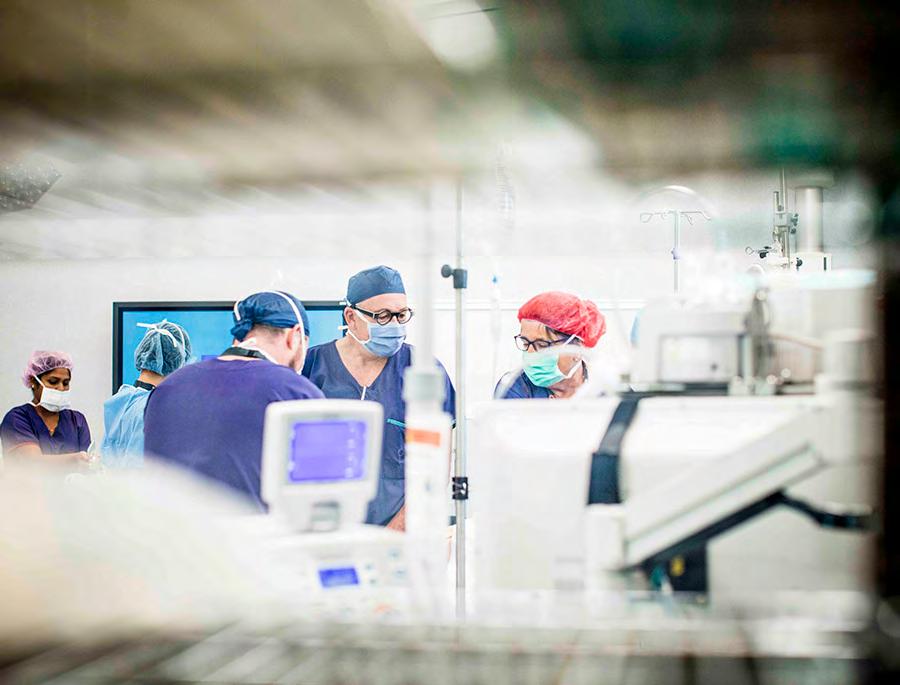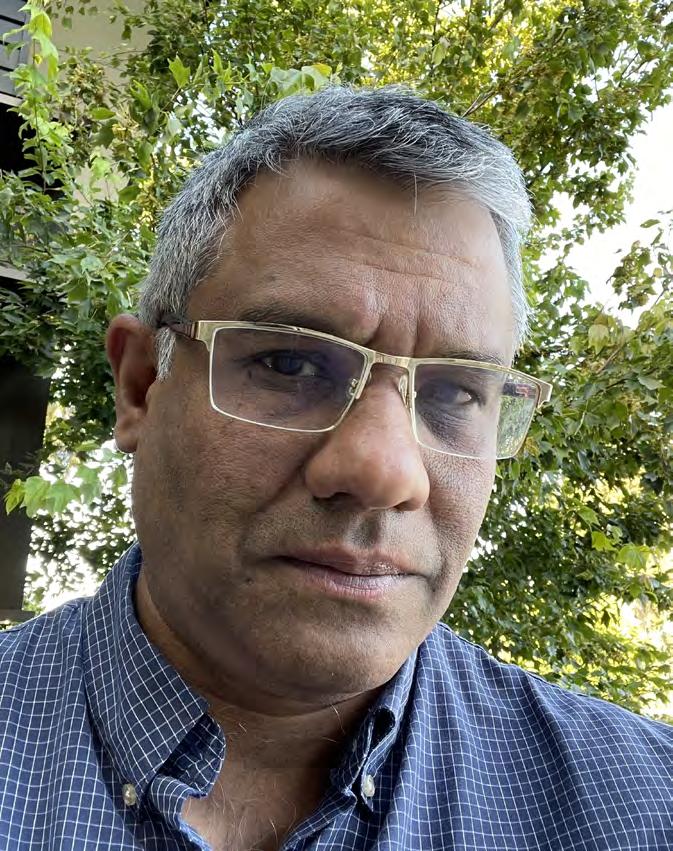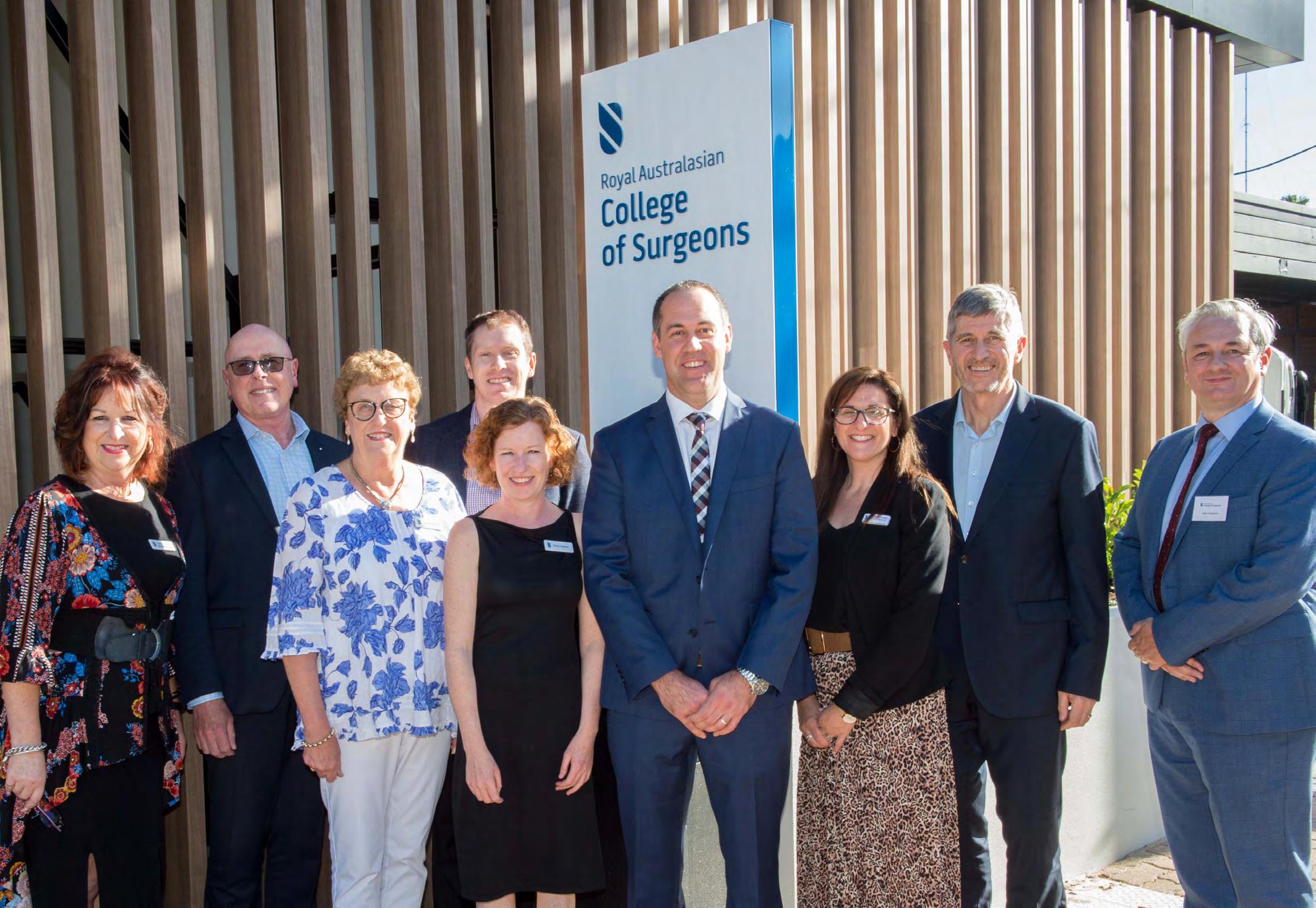10
New beginnings feature
New Zealand surgeon’s ground-breaking work to change patients’ lives The 2020 recipient of the Royal Australasian College of Surgeons (RACS) John Mitchell Crouch (JMC) Fellowship, Professor Greg O’Grady, is an academic surgeon who develops technological innovations that improve outcomes for patients with gastroenterology diseases. With a strong focus on surgical recovery, Professor O’Grady’s work in translational research bridges the gap between basic science and clinical practice – an approach often referred to as ‘bench to bedside’ research. A PhD in bioengineering, along with a Fellowship in General Surgery from RACS, and further training with the Colorectal Surgical Society of Australia and New Zealand have provided a broad academic and clinical basis for his work. Rather than writing papers, he recently made a deliberate decision to “focus on developing real-world products that [he] hopes will be useful to a large number of people”. Professor O’Grady’s research impact has led to first descriptions of fundamental
physiology of the human gut, novel mechanisms of diseases, new causes of delayed or failed surgical recovery and innovative new therapies for patients suffering from intestinal failure. Professor O’Grady founded the Surgical Engineering Lab at the University of Auckland in 2017. Then, in 2018, he was the youngest recipient and only surgeon to lead a prestigious $5 million Health Research Council Programme Grant in New Zealand. His other awards include a Master of Gastroenterology Award from the American Gastroenterology Association and the Vice-Chancellor’s Research Excellence Medal from the University of Auckland. Altogether, Professor O’Grady has helped raise more than $10 million in grant funding for translational research into gastrointestinal diseases. His work has also contributed to 21 patents and three university spin-out companies. The JMC Fellowship is the most prestigious award offered by RACS, and it was awarded to Professor O’Grady to
help support the development of four major projects through the University of Auckland. Each of these projects is ‘scalable’ so the solutions can be turned into real products used for routine clinical care. 1. A novel chyme re-feeding device for patients with enterocutaneous fistulas The chyme re-feeding device is the most advanced of the four projects. It has generated a lot of interest in Europe, and has achieved CE marking approval, which means it has satisfied all the directives for safety and performance requirements for medical devices in the European Union. It has also been approved in New Zealand and is under review by the Therapeutic Goods Administration in Australia. The re-feeding device is currently used for patients with complex gut problems, such as high-output enterostomies and enterocutaneous fistulas. “These are often surgical catastrophes that are really crippling for patients,” Professor O’Grady said. “The device takes the losses that come out of the upstream stoma




























